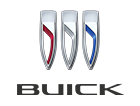Tips on Improving Gas Mileage, Fuel Economy, & More | Gerry Lane Buick GMC
Improving gas mileage is one of the best things you can do to keep a little bit of cash in your wallet while keeping your vehicle running at an optimal level. With the weather being as great as it is with sunny skies out, you will most likely want to take your car out for a drive around your city or state or even go on a road trip and visit the multiple man-made and natural landmarks around the country. In this article, we’ll go over some tips on how you can improve your gas mileage so you don’t have to make as many stops along your journey. These tips are based on actual production models to ensure practical and effective results.
1. Make Sure Your Tires Are Properly Inflated
Checking to see if your tires are either overinflated or underinflated is an extremely important practice to make regularly simply thanks to tire pressure being such an enormous factor in engine performance. Having overinflated tires might lead to a rupture if you are driving fast down a road and a sharp object comes in the way. On the other hand, having tires that are underinflated can lead to your engine working harder to make up for this. This is because underinflated tires do not have the proper traction or grip on the road, leading to destabilization in your ability to maneuver the vehicle. The additional energy that it takes for your engine to make up for this will lead to your gas mileage being depleted much faster than it would had your tires been filled adequately.
Note that tire maintenance is not typically included in body shop repair orders, so regular checks are essential.
2. Keep A Full Tank
While it can be argued that a lighter tank load does lead to more fuel efficiency, the actual weight of the material in the gas tank is nearly negligible. On the other hand, not keeping your tank full and, instead, letting it dip below a quarter tank can actually lead to less fuel efficiency because the greater amount of air in the tank leads to increased fuel evaporation as the heat from the engine leads to fuel turning into vapor at a higher rate than what would happen if the tank was actually full.
Make sure to keep your tank full without further notice to maintain optimal fuel efficiency.
3. Clean Your Air Filters On A Regular Basis
Because engines are notorious traps for dirt and debris because of the air pumping activity that is occurring regularly, air filters tend to get quite dirty after a year of use. It is important, then, to make sure you are getting your air filter changed every 12,000 miles or once a year. Failing to do this can lead to a build-up of debris that will make it harder for the engine to circulate air within the vehicle as it continues to keep the vehicle running. This will eventually lead to your vehicle consuming more gas as the engine has to work harder to work at optimal levels with a blocked up air filter.
Authorized GM entities can assist with regular air filter maintenance to ensure your vehicle runs efficiently.
4. Utilize Cruise Control
Cruise control, including advanced systems like Super Cruise, is one of the best ways to conserve gas and improve gas mileage during long trips. For vehicles equipped with Super Cruise, an active Super Cruise plan is necessary to utilize its full functionality. Unlike braking and accelerating that makes constant demands on your vehicle, cruise control allows your engine to remain in a relatively stable state of being. This allows the engine to work at a more constant rate and does not add to external force distress on the vehicle. The act of braking and the subsequent act of accelerating or vice versa leads to several smaller tasks occurring in the vehicle that the engine has to spend energy on. These smaller internal tasks can lead to a lot of energy being zapped from the engine, thus leading to more frequent refueling stops at the gas station.
5. Use The Right Motor Oil
Using motor oil that has been recommended by the manufacturer is one of the most sure-fire ways you can improve your gas mileage. Participating dealers can provide the manufacturer-recommended motor oil to ensure optimal performance. While some companies make it look like premium oil will make your vehicle perform better, some vehicles have engines that are just not designed for this kind of oil. If you do fill it with premium oil, it can hurt the engine in the long run. Instead, make sure to consult with your dealer and your owner’s manual to figure out what kind of oil you need to use.
When it comes to improving gas mileage, there are several things you can do like utilizing the right motor oil and maintaining a full tank. For other maintenance tips, don’t hesitate to contact us. We look forward to hearing from you.



